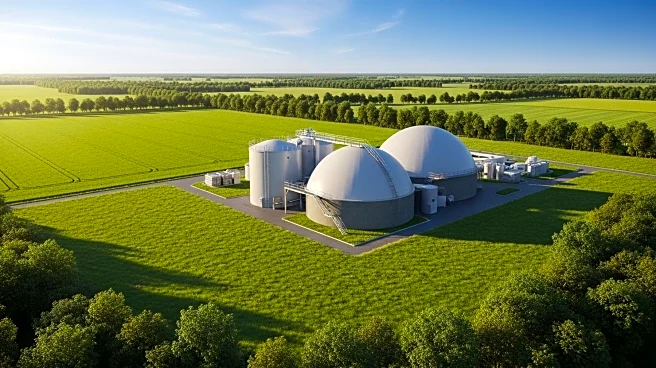What's Happening?
A recent report from Minnesota's Agricultural Utilization Research Institute (AURI) highlights the potential benefits of anaerobic digesters for farms of all sizes. Anaerobic digestion is a process where organic materials, such as food waste and manure, are decomposed in the absence of oxygen to produce biogas. This biogas can be used as a renewable energy source, replacing fossil natural gas or generating electricity and heat. The report, titled 'The Biogas Opportunity for Minnesota Farmers: A Business Guide for On-Farm Anaerobic Digestion,' provides a roadmap for farmers to add value to their operations through this technology. The study suggests that anaerobic digestion could help Minnesota industries meet over 13% of the state's natural gas demand.
Why It's Important?
The adoption of anaerobic digesters presents a significant opportunity for the agricultural sector to contribute to renewable energy production and reduce reliance on fossil fuels. By converting organic waste into biogas, farms can create an additional revenue stream while also addressing environmental concerns related to waste management. This technology supports sustainable farming practices and aligns with broader efforts to reduce greenhouse gas emissions. The potential to meet a substantial portion of natural gas demand through anaerobic digestion underscores its importance as a viable energy solution for the future.
What's Next?
As the industry evolves, farmers and stakeholders will need to assess individual opportunities for integrating anaerobic digesters into their operations. The report encourages ongoing evaluation of technological advancements and market changes to maximize the benefits of this renewable energy source. Policymakers and industry leaders may also explore incentives and support mechanisms to facilitate broader adoption of anaerobic digestion across the agricultural sector.










